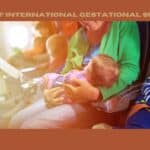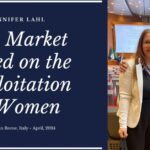A recent news story reports of four sisters who live in Tabasco, Mexico, who are making a living serving as paid gestational surrogates, mostly for European gay couples.
Milagros, the eldest sister, heard about the ‘rent-a-womb’ business in 2013, and thought it would be a good way to make a living. She felt her only other job options were waitressing for pennies or prostitution.
When sisters Martha, Maria, and Paulina saw the money Milagros made (about $15,000 USD) they decided to follow in her footsteps. Even the family matriarch, Lourdes, at 81 years of age says that if she could, she would serve as a surrogate too: “a woman can earn a fortune doing which comes naturally.”
It’s heartbreaking to see these women, who from the photos live in poverty and see this as their only hope, making in nine months what it would take their brother 20 years to earn.
Milagros, who has 3 children of her own says, “I’ll continue renting out my womb for as long as I can. I’m sacrificing my own body to secure a future in a country where nothing comes easy.”
It’s uncertain what will happen with surrogacy in Mexico, but we will support their country in doing what it can to #StopSurrogacyNow.
Image by alphaone via flickr (CC BY-SA 2.0)
Author Profile

- Jennifer Lahl, MA, BSN, RN, is founder and president of The Center for Bioethics and Culture Network. Lahl couples her 25 years of experience as a pediatric critical care nurse, a hospital administrator, and a senior-level nursing manager with a deep passion to speak for those who have no voice. Lahl’s writings have appeared in various publications including Cambridge University Press, the San Francisco Chronicle, the Dallas Morning News, and the American Journal of Bioethics. As a field expert, she is routinely interviewed on radio and television including ABC, CBS, PBS, and NPR. She is also called upon to speak alongside lawmakers and members of the scientific community, even being invited to speak to members of the European Parliament in Brussels to address issues of egg trafficking; she has three times addressed the United Nations during the Commission on the Status of Women on egg and womb trafficking.
Latest entries
 infertilityApril 23, 2024The Rise of International Gestational Surrogacy in the U.S.
infertilityApril 23, 2024The Rise of International Gestational Surrogacy in the U.S. Assisted Reproductive TechnologyApril 16, 2024Founder Jennifer Lahl’s Speech on Surrogacy to the Casablanca Declaration
Assisted Reproductive TechnologyApril 16, 2024Founder Jennifer Lahl’s Speech on Surrogacy to the Casablanca Declaration #BigFertilityFebruary 27, 2024No, Alabama Didn’t Ban IVF
#BigFertilityFebruary 27, 2024No, Alabama Didn’t Ban IVF ArticleSeptember 25, 2023The Little Engine That Could
ArticleSeptember 25, 2023The Little Engine That Could

